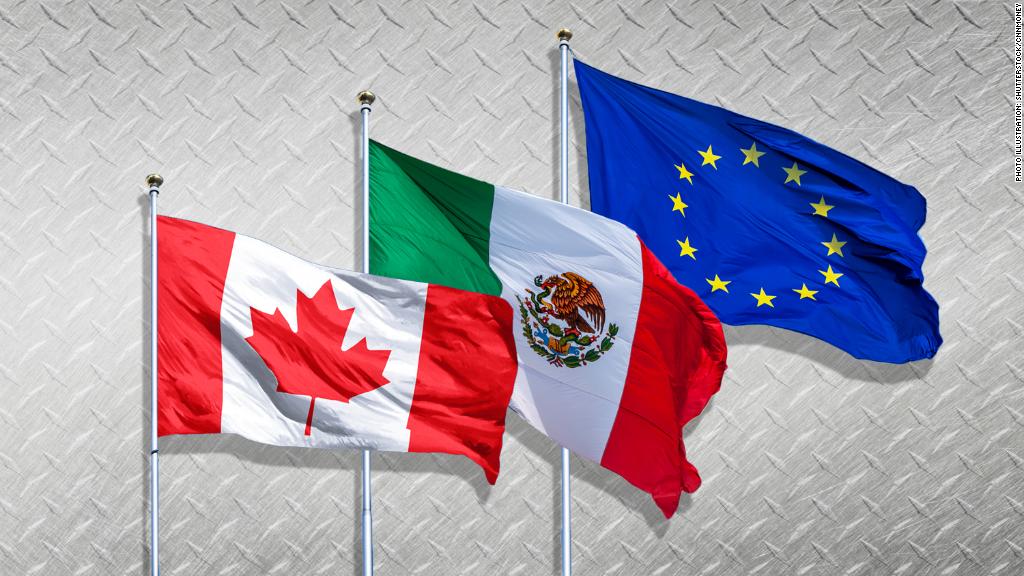
President Donald Trump and the Republicans love to tout their recent overhaul of the tax code, including trillions in tax cuts.
Their big promise: It'll be great for the American economy and average people by increasing investment, jobs and wages.
But any benefits from the new tax law may be undercut by Trump's imposition of tariffs.
So far tariffs have been announced on Chinese products and imposed on steel and aluminum imports, washing machines, solar panels and Canadian paper and lumber. Next there could be tariffs on imported automobiles, as previously threatened. And more potentially could be imposed on other products or materials, depending on how talks to modify the North American Free Trade Agreement go.
In the wake of the steel and aluminum tariffs announcement Thursday, advocates for the new tax law warned that tariffs are just tax hikes by another name.
"Tariffs on steel and aluminum imports are a tax hike on Americans and will have damaging consequences for consumers, manufacturers and workers," the Senate's chief tax writer, Finance Committee Chairman Orrin Hatch, said Thursday.
Hatch's counterpart in the House, Kevin Brady, asserted that imposing the steel and aluminum tariffs on imports from Canada, Mexico and the European Union "hurts our efforts to create good-paying US jobs by selling more 'Made in America' products to customers in these countries."
Related: We asked CNNMoney readers how Trump's tax cuts were affecting them
The National Taxpayers Union was also not having it. "Increased car and truck prices are just the tip of the iceberg. Additional costs would be imposed on US workers as other countries retaliated by imposing tariffs on US exports," said Bryan Riley, director of NTU's Free Trade Initiative.
China, Mexico, Canada and the EU have already said they will retaliate. And that can hurt US companies' ability to sell products abroad, which in turn can cost American jobs or put the kibosh on wage hikes.
The potential risk to business owners and workers
The tax overhaul lowered income tax rates and expanded expensing provisions to make US businesses more competitive internationally and to incentivize them to invest in new projects, said Erica York, an analyst with the Center for Federal Tax Policy at the Tax Foundation.
Tariffs undermine that incentive if businesses are facing higher prices or worrying about future tariffs, York noted.
Ultimately, US businesses affected by tariffs have two choices: They can absorb the cost, thereby reducing profits and leaving them less money to invest, hire or give raises. Or they can raise their prices, making them less competitive, which can also hurt profits.
Related: What aluminum and steal tariffs will mean to you
And if a company sees its profits turn to losses as a result of tariffs, a key business tax cut created by the new tax law won't help them.
The American Action Forum, a right-leaning think tank, estimates that American consumers will spend $7.5 billion more per year than they otherwise would just as a result of the steel and aluminum tariffs. That number will be higher still if the EU, Mexico and Canada retaliate, AAF asserts.
Add to that higher gas prices, higher health costs and ordinary inflation, and it's easy to see how the tax cuts ordinary Americans are expecting could be eaten away.
The Tax Foundation in April estimated that the proposed tariffs on Chinese goods alone could offset more than a quarter of the tax cuts for businesses and individuals.


